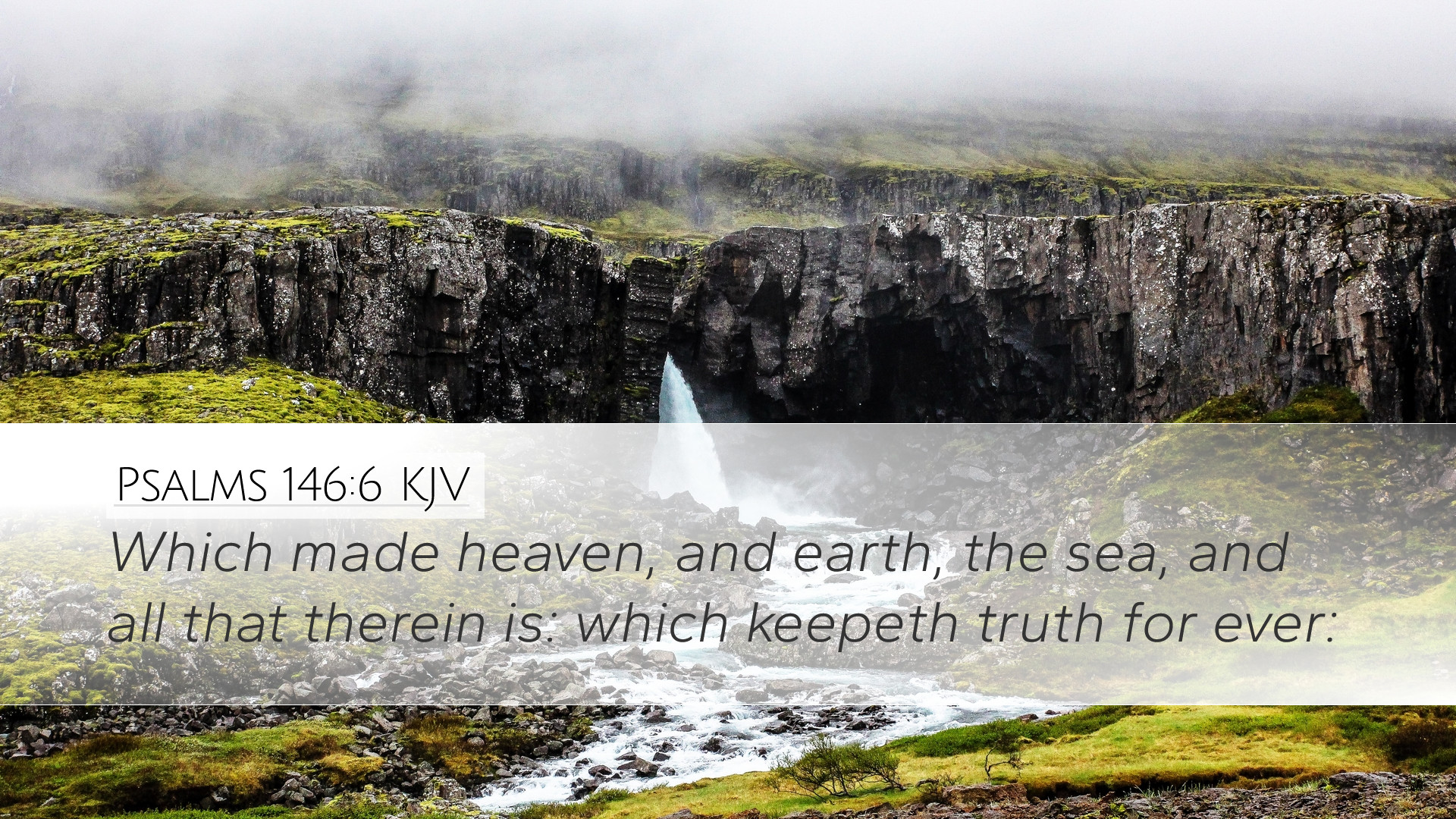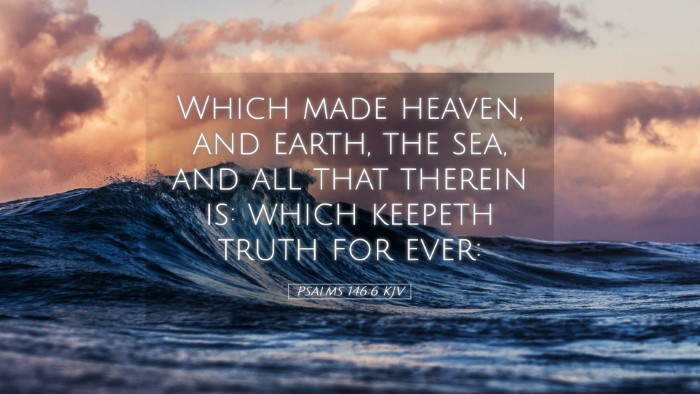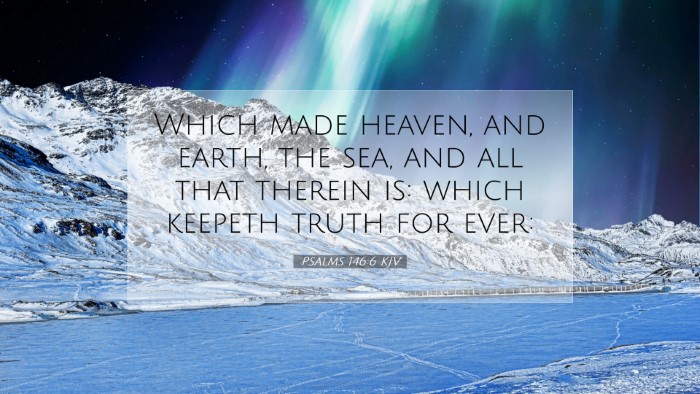Psalms 146:6 - Commentary and Insights
Verse: "Which made heaven, and earth, the sea, and all that therein is: which keepeth truth for ever."
Summary of Psalms 146:6
Psalms 146:6 is a profound statement about the nature of God as Creator and Sustainer. This verse highlights several theological emphases that merit deeper exploration, especially for pastors, theologians, and Bible scholars.
Theological Implications
- Creator of All: The phrase "Which made heaven, and earth, the sea, and all that therein is" underscores the omnipotence of God as the Creator. This claim affirms not only the existence of God but also His ultimate authority over creation. Matthew Henry emphasizes that recognizing God as Creator serves as the foundation of faith and worship.
- God’s Sovereignty: The ability to create the universe and everything in it also implies God's sovereignty over all creation. Albert Barnes points out that this sovereignty assures believers of God’s control over every aspect of life, offering comfort in times of turmoil.
- Perpetual Truth: The latter part of the verse, "which keepeth truth for ever," speaks to God’s unchanging nature and faithfulness. Adam Clarke notes that this aspect of God's character assures believers that His promises are steadfast and reliable. God’s truth is not merely a static entity; it is dynamic and actively sustains the cosmos.
Insights from Commentaries
Matthew Henry's Commentary
Henry emphasizes the importance of recognizing the greatness of God in His creative works, urging believers to find solace in the fact that the Almighty, who created the entirety of existence, is on their side. This verse prompts believers to reflect on the magnificence of the natural world as a testament to God's glory. In his reflections, he points out that God’s creativity is a source of joy and serves as an invitation to worship Him.
Albert Barnes' Commentary
Barnes elaborates on the implications of God being the Creator in the context of trust and reliance. He encourages readers to see in this verse a call to trust God in His promises, as He is not only the Creator but the sustainer of life. By permeating the world with His truth, God provides believers with a moral framework and assurance that His designs for humanity will come to pass, regardless of earthly circumstances.
Adam Clarke's Commentary
Clarke focuses on the significance of God's truth being eternal. He notes that unlike human beings, whose truth may fluctuate, God's integrity is immutable. He draws attention to the impact of this truth on the believer’s life, advocating that such assurance provides peace and confidence. Clarke encourages the faithful to contemplate the nature of God as the ultimate arbiter of truth, leading to a transformed understanding of reality, beyond the ephemeral nature of human experience.
Practical Applications for Believers
- Worship and Awe: Believers are called to respond with awe and reverence for the Creator. Understanding God’s power in creation can deepen one's worship and appreciation for the beauty of the world.
- Trust in God’s Sovereignty: In life’s uncertainties, this verse serves as a reminder to maintain faith in God’s sovereign plan, knowing that He maintains the truth and order of creation.
- Living in Truth: Acknowledging God as Keeper of Truth leads believers to prioritize integrity and honesty in their own lives, reflecting God’s character in their interactions.
- Encouragement for Prayer: Understanding God’s nature as a prayer-hearing and truth-keeping God should encourage believers to seek Him through prayer, trusting His perfect will and timing.
Conclusion
Psalms 146:6 encapsulates the essence of God's greatness as Creator and sustainer, calling believers to a deeper understanding and relationship with Him. The insights gleaned from the commentaries of Matthew Henry, Albert Barnes, and Adam Clarke provide a rich tapestry of wisdom that is applicable to various facets of the Christian life. By grounding oneself in the truth of this verse, believers can navigate the complexities of life with hope and assurance.


